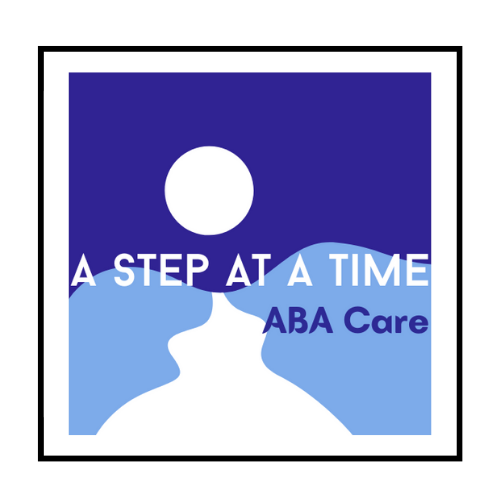
Our Services
For Little Ones and Families.
ABA | Initial Assessment
IN-HOME | 1:1 | ALL PAYMENT METHODS
-
An initial assessment is required to create an individualized treatment plan for your child. This is a foundational step in understanding your child’s and your family’s needs. Our goal is to understand the causes of your child’s behavior and how the environment affects it.
Following the initial assessment, subsequent assessments must reoccur every 6 months to evaluate progress.
-
The initial assessment generally includes:
1/2 hour for initial intake: speaking with the client/guardian to obtain background information;
4 hour of assessment time: 2 hours meeting with the family and 2h evaluating the learner. The Board-Certified Behavior Analyst (BCBA) will assess the child’s capabilities during a play session and by utilizing tools such as the SKILLS, the AFLS, the FBAs, and/or the VB-MAPP;
1 1/2 hour of analysis outside the clearner’s presence: completing the scoring, writing a report, and developing your child’s treatment plan and ABA program book. These describe the unique treatment plan designed by the BCBA to best target your child’s specific areas of relative strength and weakness and your family’s values and goals;
1 hour meeting for feedback: going over assessment results and recommendations for services, and scheduling ongoing services: comprehensive (25-40 hours weekly) or focused, as medically necessary.
ABA | Direct Therapy
IN-HOME / COMMUNITY| 1:1 | ALL PAYMENT METHODS
-
Following the initial assessment, ndividualized ABA therapy can begin. It is delivered in a one-on-one format in your home, in school or in the community.
ABA therapy uses positive, natural reinforcement to develop new skills and eliminate or replace negative behaviors based on your child’s unique set of needs, preferences, interests, skills, and family support system.
The goal is to build communication and language skills, increase social and emotional skills, improve adaptive daily living skills, and reduce problem behavior.
For comprehensive treatment to be most effective, research proves that the intervention must be intensive: 25 to 40 hours weekly. Typically, “waddlers” (under age 2) will start with 30 hours weekly, toddlers build up gradually to 35 hours a week, and end up at 40 hours between ages 3 and 5. A focused treatment may be more appropriate, depending on the results of the initial assessment and the medical necessity.
-
An experienced Board Certified Behavior Analyst (BCBA) will design a unique treatment plan specifically for your child.
The BCBA will also lead the direct therapy sessions directly in the case of a self-paying family.
In contrast, therapy for insurance-funded families is provided by a paraprofessional under the supervision of a BCBA, as per insurance mandate.
At each session, the BCBA or paraprofessional will come prepared to work on a specific subset of your child’s treatment plan and will collect the data reflecting your child’s learning.
ABA | Parent Training
REMOTE | | 1:1 | ALL PAYMENT METHODS
-
As a caregiver, you are the MVP of your child’s care team. Caregivers play an instrumental role in reinforcing treatment objectives outside of dedicated therapy sessions.
Anyone interacting with an individual with autism should use ABA strategies to ensure that the efforts are consistent in every environment.
Having supportive family members and friends who consistently use ABA techniques will provide the necessary support for your child to thrive.
By working collaboratively every week, caregivers will make remarkable progress in improving their well-being, their quality of life, and their interactions with their children. Any lack of parent engagement will jeopardize the continuity of services.
-
Our BCBA will join parents virtually in a one-on-one session to teach them how to become their child’s most effective teacher. The first session looks more like an interview to determine the frequency of need:
Tier 1: Parents require general support that targets parenting basics such as incorporating structure and routine, house rules, and follow through. Behaviors of concern occur weekly and are mild. Behaviors cause limited disruption to the family and home. Virtual coaching suggested: 2x 2-hour sessions a month;
Tier 2: Parents require the above in addition to strategies to target a persistent area of need that has been resistant to other interventions in the past. Behaviors of concern occur daily and are of moderate disruption to the home. Virtual coaching suggested: 4x 2-hour sessions a month;
Tier 3: Parents are experiencing behaviors of concern hourly. They are generalized to various settings, people, and activities. The behaviors of concern create severe disruption to the home. Virtual coaching suggested: 8x 2-hour sessions a month or more.
In-person parent coaching would be determined necessary if there is an immediate danger to the child and/or family when the interview occurs.
ABA | Social Skills
COMMUNITY | GROUP | INSURANCE / SELF-PAY
-
A lack of social skills typically causes social awkwardness.
Our learners embrace valuable lifelong lessons such as how to read social cues and how to resolve conflict.
-
Our BCBA facilitates 1-hour role-play socializing group sessions where 12 children work together on a variety of scenarios to develop a specific social skill.
The focus is on improving the skills used every day to interact and communicate with each other. They include verbal and non-verbal communication, such as speech, gestures, facial expressions, and body language.
Special Education | Academic Support
IN-SCHOOL | 1:1 | SELF-PAY
-
We offer special education curriculum development and discreet high-quality support for classroom-capable children.
-
An itinerant teacher will help a child achieve academic goals and successfully integrate into class.
This is done by honing the skills a child needs to learn alongside their typically developing peers. The teacher creates customized strategies based on the child’s education plan.
Depending on a child’s needs, the child may or may not even know that our itinerant teacher is in the class for him or her.
Special Education | Academic Tutoring
REMOTE | 1:1 | SELF-PAY
-
We offer online one-on-one sessions to provide academic support across all subjects for children in kindergarten through 6th grade.
After gathering information from the parent, teacher, and student, our educator develops a personalized learning plan to meet a student in the learning process.
Students achieve the most success when we work in tandem with the school curriculum while teaching new skills, which build over time.
-
Targeted areas include:
Writing (handwriting, spelling, composition, creative writing, and research);
Reading (phonics, fluency, comprehension, and literature studies);
Mathematics (all levels)
Executive functioning skills (organizing, planning, and prioritizing)
Social-emotional skills (self-awareness, emotion regulation, problem-solving, relationship skills, and goal setting).

Treat yourself to our next Fireside Coaching.
Schools.
-
We support the individual needs of students presenting a range of behavioral and instructional needs.
-
Our offer includes:
individual student or classroom support
functional behavioral assessments
behavior intervention plan implementation
independent evaluations
social skills groups
expert witness testimony.
-
Our offer includes:
awareness of autism and related disorders
prevention of escalation training
positive behavior support
program development workshops
superintendent & special education director legal and clinical training
evidence-based training
mental health / Acceptance & Commitment Training
crisis prevention and remediation training and certification
training or deployment of expert support staff.
Organizations
We use Organizational Behavior Management (OBM) strategies to change employee behavior and help organizations succeed.
Our offer includes designing reciprocal feedback systems, mentorship programs, individualized key performance indicators, performance-based incentives, ethics training, and more.
Payment options.

Contact Us
Intake Form:
Call Us:
Quality early intervention is key. Fill out the intake form and we’ll be in touch within one business day.
Services available on a first-come, first-served basis and by therapist availability in your area.









